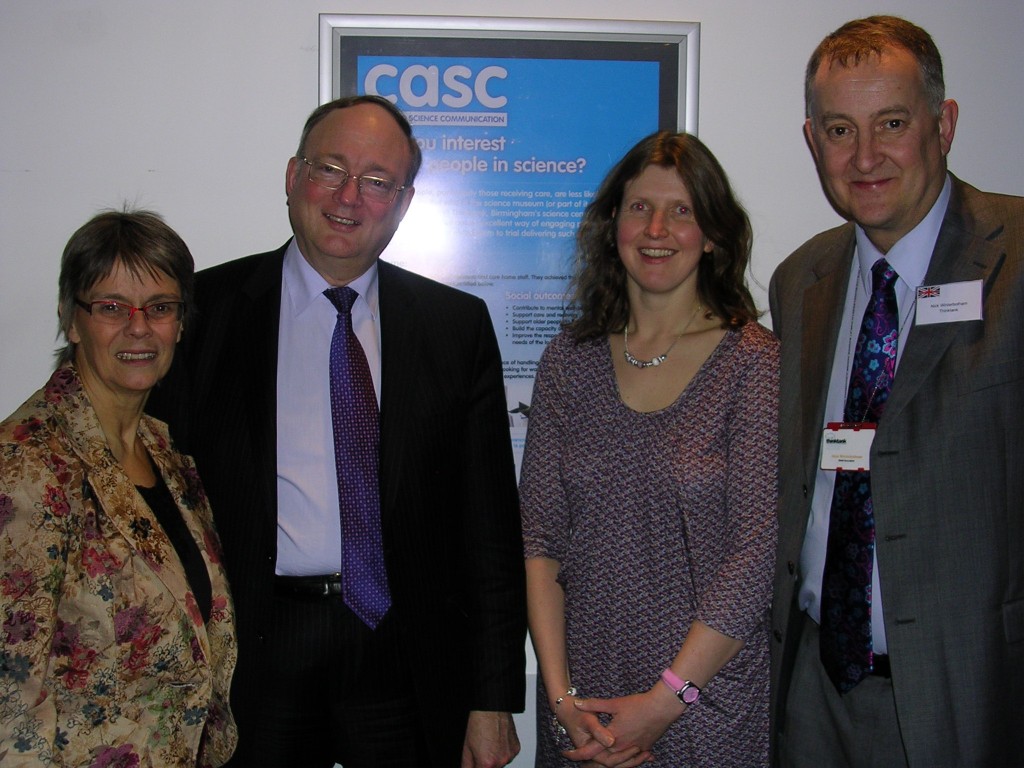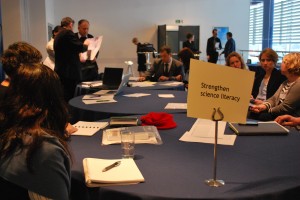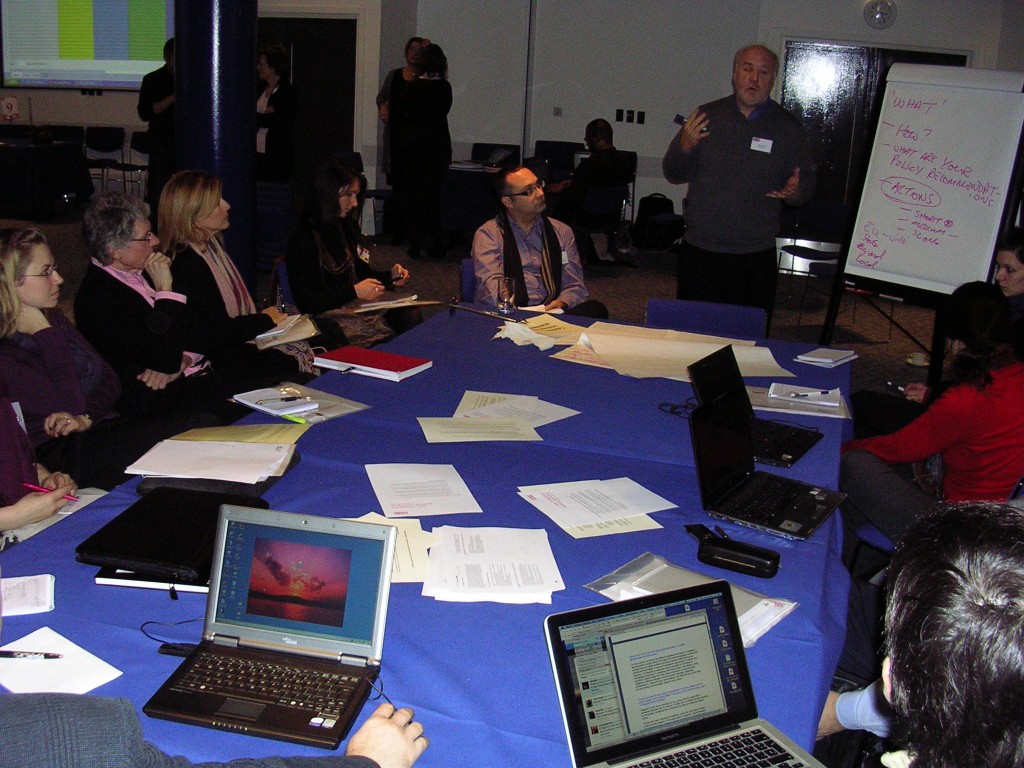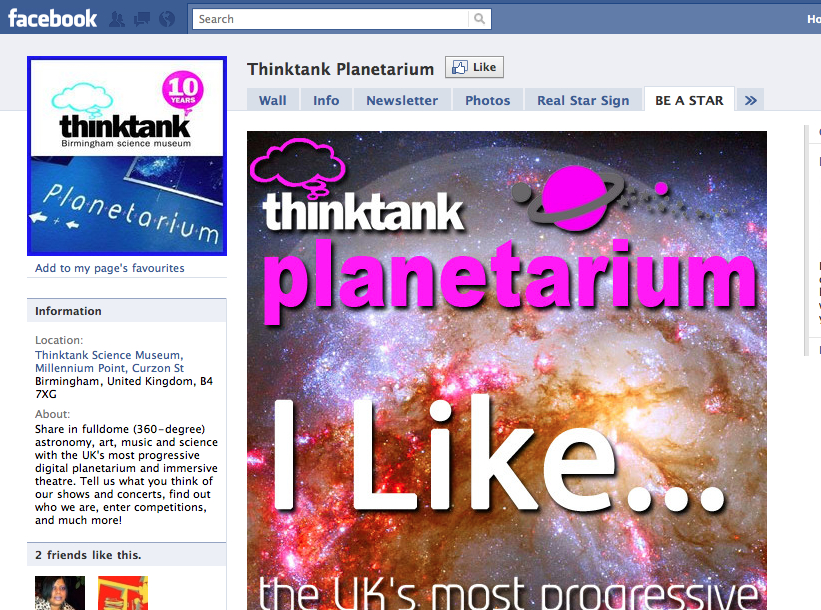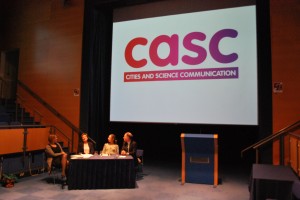The New Optimists is a book asking scientists the question: “What makes you optimistic?”
Sue Beardsmore chaired a panel talking with Kate Cooper, the publisher of the book, and two professional scientists, Dr Juliet Coates (a young botanist from UoB) and Aston’s Professor PeterLambert (a microbiologist with a substantial research career behind him).
Juliette, whose research is focused on the development and evolution of complex plants, said she was optimistic about: “Plant evolution, the key to a new generation”. Peter Lambert, who was interested in infections caused by bacteria and how they’re treated with antibiotics, cited “Microbiology, the key to life on earth” as his subject for optimism.
The New Optimists concept was focused on scientists in the West Midlands initially, and was boosted by Julia King, vice-chancellor of Aston University, who was one of the first people to asked to contribute. She not only agreed, but recommended other people for the project.
During the panel discussion, Kate Cooper said that scientists often get criticised for not communicating, but suggested that scientists are good communicators, they just need a platform. She said: “The New Optimists gave them an easy platform to talk about what they were interested in, not today, but tomorrow.”
Juliette said she was optimistic about plants as they are organisms that can be very useful to society, for example algae as a future biofuel or food source.
Peter Lambert said he had always been optimistic about science and that microbiology was important, as it keeps us alive. Microorganisms were the first things on Earth, “The key to life”, he said, and we should “take them for granted at our peril”.
Juliette saw the New Optimists project as an opportunity to target a new group of people. The question was not difficult to answer in the end, she explained, but it had made her think about how what she was doing could benefit a wider group of people.
Although contributing to the project was not a direct benefit to their jobs, bot scientists agreed that writing to a wider audience was useful and was different to writing for journals and funding applications.
On a related note, Peter suggested that if you couldn’t explain the science in ‘lay’ terms, perhaps you shouldn’t do the work. The point was to understand the basic concepts, he insisted, and communicate them to people.
One question from the audience asked, what can scientists do to go beyond The New Optimists to get young people, for example, to engage with science. Juliette said she does voluntary work in schools and this was an important part of her job for her.
With €330 million to spend, the scientists suggested it should go on high-class science communication and to encourage positive dialogue with the media about science. Targeting children was important, they added, to get them enthused and fired up about science.
Scientists, Peter argued, should be forced to communicate, rather than selfishly working on own projects. Although a member of the audience suggested that most scientists are interested in science, not public speaking, but agreed a proportion of budgets should go on public engagement.
Kate said that some lessons from The New Optimists included:
- Learning about publishing
- Setting a model that can be tweaked for different audiences
- Forming a not for profit company that owns the copyright and can share it
- Developed relations with organisations – which has led to funding offers for other subjects
- And paves the way for new activities and collaborations

